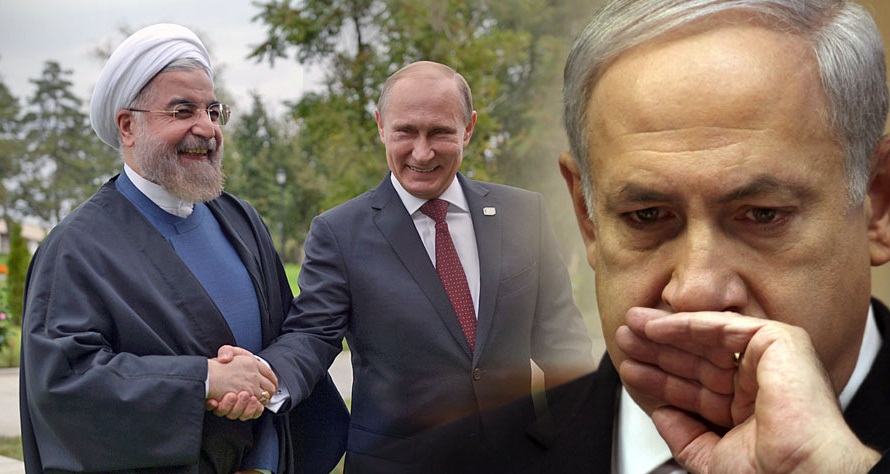
RNA - Iran and Russia in recent years engaged in a partnership and have done an array of activities including opposing the American unilateralism, pushing for forming a multi-polar global order, and working jointly to prevent increased US pressures to isolate them. But these were not all of the jobs done by Moscow and Tehran as part of their alliance. During this time they have gained further power of maneuvering internationally on the strength of their cooperation with independent governments that are discontented with the status quo. The two countries also almost checked a NATO creeping towards the East. Moreover, they came against the Western double standards in dealing with the human rights issues, as at the same time they challenged attempts to undermine the UN role in settling the regional and international crises.
But perhaps the most obvious case of the Iranian-Russian cooperation can be seen in the Syrian crisis. Common views of Russia and Iran on supporting the government of President Bashar al-Assad have paved the way for even wider collaboration of Moscow and Tehran. But their relations faced some highs and lows under some internal and external factors.
One of the key factors influential in the Iranian-Russian relations is the role played by the Israeli regime. In past years, the Israeli-Russian relations sometimes to some extent went strained due to tight cooperation between Moscow and Tehran especially when it came to military and nuclear activities. In the eyes of Tel Aviv, any partnership of these two countries, particularly in military and nuclear industries, means strengthening the Israeli regime’s arch-enemy, Iran. So, Tehran-Moscow cooperation in nuclear program is a sensitive issue shadowing the Tel Aviv-Moscow ties. In terms of Iran nuclear program, the Israeli stances heavily impact the American positions.
Anyway, the Israeli leaders are in a persistent dialogue with officials of different countries in a bid to change the current atmosphere in their favor and against Tehran’s interests. Meanwhile, in this regard one of top Israeli ends is to convince the Kremlin’s leaders into joining Tel Aviv and Washington in their anti-Iranian policies. In addition to direct negotiations with the Russian leaders, the Israelis ask third-party sides and their partners to contribute to their campaign to influence the Russian stances in relation to Iran.
Israeli regime has gone to great lengths to directly or indirectly affect Russia’s Iran posture. This was especially apparent when Dmitry Medvedev was president of Russia. Medvedev adopted a policy of closeness to the US. Backed by the influential pro-Israeli lobby in the US, the Israelis tried to affect Iran-related Kremlin approaches and decisions using the US administration. This effort was markedly noticeable when it came to Moscow-Tehran S-300 anti-aircraft missile systems contract. Some sources suggested that the Israeli regime cut its military cooperation with Georgia at the behest of Russia, and in return Moscow suspended delivery of the S-300 missile systems to Tehran at a request of Tel Aviv.
Tel Aviv is well aware that Russia, due to its close ties with Iran and also its veto right at the UN Security Council, can play a key role in determining factors that lead to Israeli decisions about any possible military action against Iran. It is for this reason that in the negotiations between Israeli and Russian leaders Iran has always been the center of dialogue.
In general, it can be noted that Iran’s role in Tel Aviv-Moscow relations goes so far that sometimes practically led to gaps and even chill in Moscow-Tel Aviv ties. This is apparent in Moscow’s cooperation with Tehran on nuclear activities as well as Moscow’s support for the Syrian government, which always drew the Israeli opposition. This pushes the Tel Aviv’s leaders to use any instruments to create a crack in Moscow’s ties with Tehran. Although some gaps appeared between them on issues that are not unlinked to Iran’s policies in the region, they keep consistency in many cases, including the West Asia peace process. Or for example, Russia not only did not so far blacklist some of Iran-backed Palestinian groups like Hamas as terrorist groups but also held close ties with them. Furthermore, Moscow has announced support for establishment of an independent Palestinian state, something disapproved of by the Israeli hardliners.
847/940